First transnational workshop
Madrid, 3 JULY, 2019
Digital transformation in the construction sector: challenges and opportunities
On 3 July 2019 the workshop “Digital transformation in the construction sector: challenges and opportunities” took place in Madrid. It was organized by the Fundación 1º de Mayo. It has counted with the participation of reseachers of severeral european countries, as well as, with representantives of Spanish social agents and from the Fundación Laboral de la Construcción. From the trade union side, it has involved the active participation of the Federación de la Construcción y Servicios de CCOO and the Secretaría Confederal de Acción Sindical de CCOO.
This workshop is the first international workshop of the research project “Digital transformation in the construction sector: challenges and opportunities” (DISCUS). This project, founded by the European Commission, focuses on the analysis of technological and digital changes in the construction sector, as well as on the role of social agents. The project, which is led by the Foundazione Guiseppe Di Vittorio (FDV), likned to the Confederazione Generale Italiana del Lavoro (CGIL). In addtion to the Fundación 1º de Mayo, the following organizations and research centres also participate: Federazione Italiana Lavoratori Legno ed Affini -FILLEA CGIL (Italy); Arbeitsforschung und Transfer (Germany); Association travail emploi Europe sociétéASTREES (France); Laboratoire d’Etudes sur les Nouvelles formes de Travail, l’Innovation et le Changement – LENTIC (Univ. de Liège) (Belgium); y Workers’ Education and Training College –WETCO (Bulgaria).
The workshop was opened by Ramón Górriz, president of the Fundación 1º de Mayo, who addressed the challenges posed by digital transformations at the workplace, especially from the point of view of disciplining and controlling workforce. In this regard, he noted that it is quite recurrent to find the use of digitization as a threat to possible job losses, although he recalled that much of the job destruction have not occurred as a result of digital transformations but rather as result of certain economic and social policies. The paradigm that understands technological change in a deterministic and isolated way hides, lastly, the labour control, being against the collective organization of the workforce.
Besides the productive structure and the characteristics of the labour force, he pointed out the need to examine the role of labour relations. The weak recovery of social dialogue and the collective bargaining framework hit by the latest labour reforms are decisive elements for assessing the productive changes that are taking place in the different sectors, as well on their consequences on employment and working conditions.
Likewise, he raised the need to analyze the territorial and energetic implications that are derived from technological changes. In all these areas, under his point of view, social agents play a key role in the final outcome of these changes.
Finally, he concluded by pointing out that there is a wide range of work to be developed by trade unions in this area (training, working time, gender, diversity, new forms of work, etc.), which must be faced by defence and expansion strategy of social and labour rights, reinforcing the collective organization of the workforce.
In the first table of the workshop, Serena Rugiero (FDV), coordinator of the DISCUS project, presented the objectives and its first results. The project aims to analyze and to strengthen the role and contributions made by innovative labour relations structures, including social dialogue, in order to respond to the main challenges and opportunities offered by digitalization and technological changes, at multiple levels.
“The most decisive factor of change is not the technological one, but policies and the correlation of forces” (Ramón Górriz)
Reviewing some issues of the study framework, she also pointed out that digitization can accelerate the flexible organization of work, with different possible impacts. Among the critical points it can be mentioned: the reconversion and destruction of employment, the polarization of working conditions, the intensification of work, the increase in precariousness, as well as new risks for safety and health. Potential benefits can be also identified: improving productivity and quality, reducing execution time, increasing efficiency, reducing waste or improving qualifications.
Finally, she raised the questions addressed by the project, articulated in the following axes of analysis: employment, work organization, sectoral and territorial characteristics, as well as the socio-environmental dimension. To do this, various tools are established (national reports, qualitative reports and case studies).
Continuedly, Daniele Di Nunzio (FDV) presented the European report, addressing the following issues: the characteristics of the sector, the regulatory framework, digitalisation and innovation in the sector and labour relations and social dialogue. Thus, in the first place, it highlighted the importance of the sector, which represents 9% of European GDP and employs 21.1 million workers. Secondly, he also pointed out that while energy and sustainability have a relevant presence in regulations in the sector, initiatives linked to digitization and innovations are referred to general measures for the economy as a whole. Thirdly, he highlighted the high level of entrepreneurial fragmentation of the sector, as well as the composition of the working population: men, with advanced age, high proportion of migrant workers, as well as low educational level. Fourthly, he highlighted the low level of digitization in the construction sector. And finally, in the field of labour relations, he recalled that the sector presents a high degree of fragmentation and associative pluralism in the whole of Europe.
In addition, he noted the low union density derived from high labour turnover, the incidence of irregular work or the difficulty of linking migrant workers to trade unions. He also highlighted the high polarization of the coverage of collective bargaining in the European Union sector, with a high level in the older Member States, compared to the new States, whose coverage is significantly lower.
The second table, moderated by Ana Bernabéu (Federación de la Construcción y Servicios de CCOO), enable to confirm that digitization in the construction sector is still very incipient in several European countries. Thus, firstly, Gernot Mühge (AT) addressed the situation in Germany. In contrast to the rest of the productive sectors, there is no in-depth debate in this sector, beyond the BIM (Building Information Modeling) methodology. In other sectors, digitization is addressed, covering aspects such as: job security, working time, professional skills, privacy and data protection or health and safety at work. Digitization raises risks and opportunities for “decent work”, being necessary its incorporation to the negotiation of future agreements and collective agreements of the sector
“The project aims to analyze and to strengthen the role of labour relations in the technological change” (Serena Rugiero)
For their part, Laura Coll and Christophe Teissier (ASTREES) reviewed the situation in France. In the first place, they highlighted the still incipient digitization of the sector. They also pointed out several obstacles: regional disparities in equipment and broadband; training needs in digital tools; companies with lack of access to the training offer; need for information and personalized training; the lack of visibility of the expected results of the technological change that postpones investment decisions; the lack of systems tailored to the profile of companies and employees; or the existence of a large proportion of low-skilled digital workers, etc.
In the field of labour relations, several initiatives in the field of digital platforms were highlighted. Among them, it can be mentioned the“Charter of good practices in the use of digital platforms (FFB)” and the signature of the “Voluntary Commitment Charter for the Building Industry for Digital Construction. BIM 2022”
Next, Nicoletta Brachini (FDV) addressed the status of the issue in Italy. He began by pointing out the regulation of the sector, which is somewhat complex. In this regard, he stressed that the fragmentation of responsibilities and the lack of coordination can be an obstacle to the development of the sector from an innovative and sustainable point of view. Regarding changes, she remarked that the labour flexibility process has been favoured by the introduction of digital technologies in the production chain.
Although the main interest is focused on BIM, expected changes would lead a new value chain model, more flexible, sustainable and less expensive, and being based on the circular economy. In this sense, other professional qualifications are demanded, for which the government has introduced tax rebates to companies to cover the 4.0 training. Regarding labour relations, social dialogue initiatives in the sector are focused mainly on improving the training and qualification of workers.
The situation in Belgium was analyzed by Marine Franssen (LENTIC). After reviewing the characteristics of the sector and labour relations, he analysed the digitization process. In this regard, she pointed out that at present time this is not a central concern of Belgian companies, with a little impact on large companies. In any case, this issue is starting to be on the agenda of the social partners, both nationally and sectorally, especially of business organizations.
Finally, Yulina Simeonova (WETCO) addressed the situation in Bulgaria, noting that it is necessary to improve the conditions to develop the digitization process in the construction sector. The basic digital skills of the population must be improved and in particular of the workers of the construction In addition, she reflected also about the migration process of skilled workers in the sector. As in other European countries, digitization is still in an initial stage, with innovations and changes in similar processes (drones, 3D, robots, etc.).
The second table of the workshop was moderated by Javier Fernández (Secretaría Confederal de Acción Sindical de CCOO) and it was focused on digitalization in the construction sector in Spain.
Thus, firstly, José Antonio Viejo (Fundación Laboral de la Construcción FLC), began by presenting the FLC, a bipartite body of the construction sector. Focused on training, employment and health and safety at work, this foundation has been giving training courses since 1992. With 47 training centres in the country, at present almost 9 thousand courses have been given to more than 86 thousand students.
In the field of digital technologies, a wide variety of courses has been developed (BIM environment, mobile applications, etc.) with a decisive impact on the improvement of the qualification of the working population of the sector.
Secondly, María José Leguina (Confederación Nacional de la Construcción) reviewed the situation of the sector with regard to innovation. In particular, she pointed out the low level companies’ expenditure on innovation, as well as the existence of gaps in the telecommunications and broadband network in Spain.
In addition, she noted that the business structure is very fragmented, making difficult innovation processes in the company. From her point of view, Public Administration should promote the process of digitization in the sector, mainly through two ways: 1) a greater commitment from training, with training itineraries linked to construction. This will relaunch the sector and will attract young workers to it; 2) public investment, aimed at small and medium-sized enterprises.
Finally, Paloma Vázquez (Federación de la Construcción y Servicios de CCOO) closed the table indicating that the digitization in the sector is still incipient in Spain. From her point of view, for dealing this issue it is necessary to take into account the working conditions of the sector, as well as the training needs.
“It is important that technological change would be addressed in the field of social dialogue and collective bargaining” (Paloma Vázquez)
Regarding the role of labor relations, she stressed that the last state collective agreement of the sector included in its preamble an express reference to technological changes and their impact on productivity and occupational risks prevention. Finally, from the union point of view, the triparte social dialogue is expected to be restarted. In the field of collective bargaining, sectoral agreement is considered as the best instrument to address digitization processes, by allowing a greater anticipation of change and ensuring employment and workers’ rights. The workshop concluded with the interventions of Serena Rugiero (FDV), who synthesized the main results of the workshop and presented the next steps of the project; and Jesús Cruces (F1Mayo), who highlighted the importance of labour relations in the process of technological change and its impact on employment and working conditions of workers of the sector

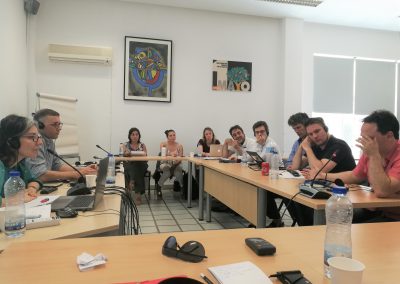
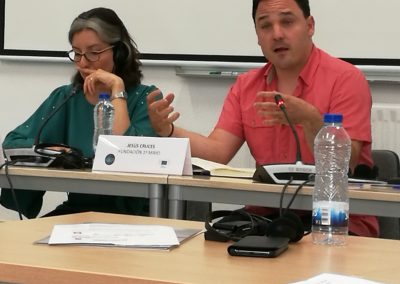
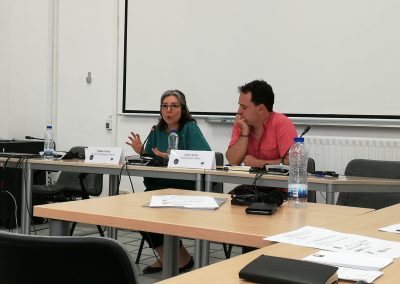
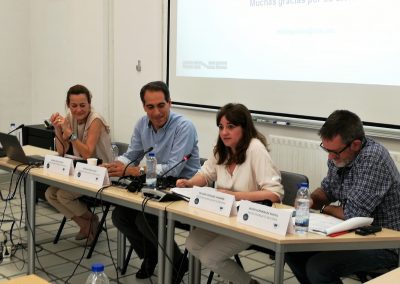
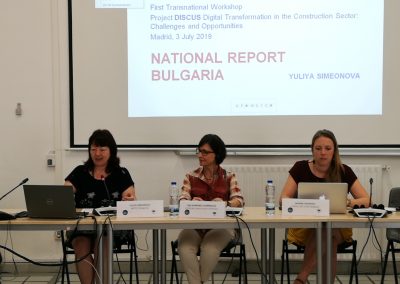
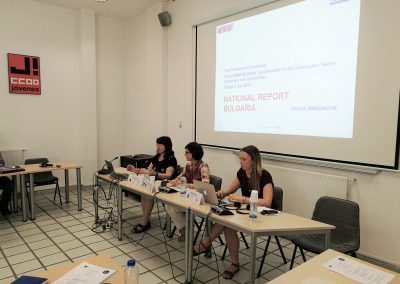
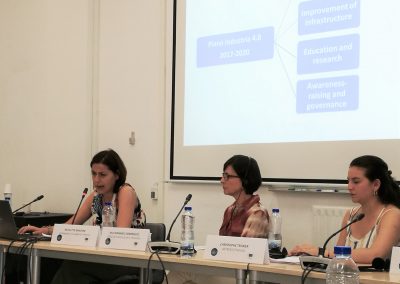
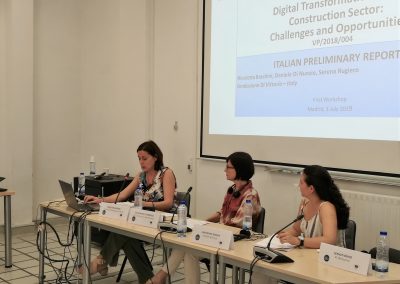
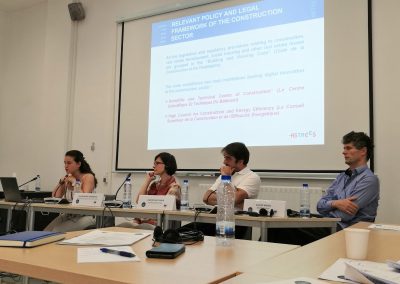
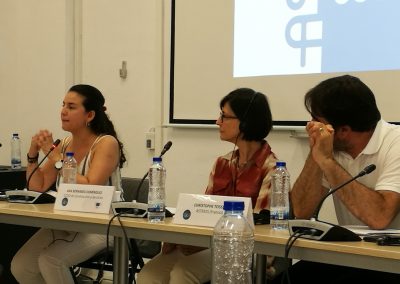
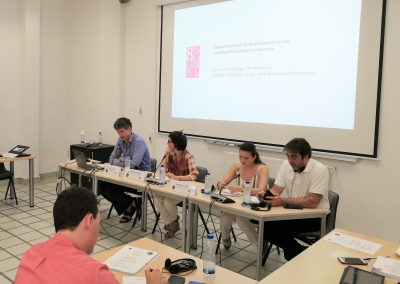
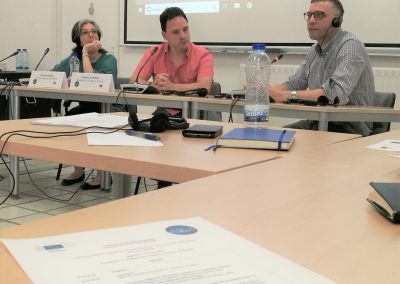
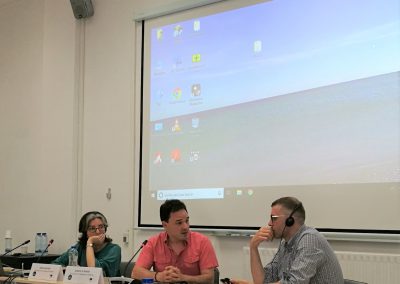
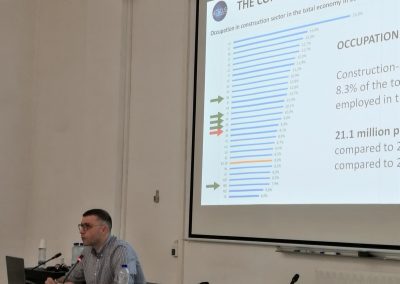
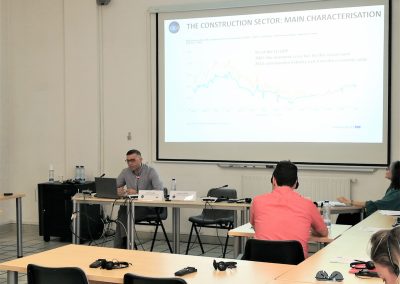
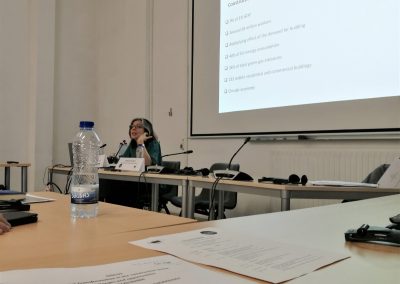
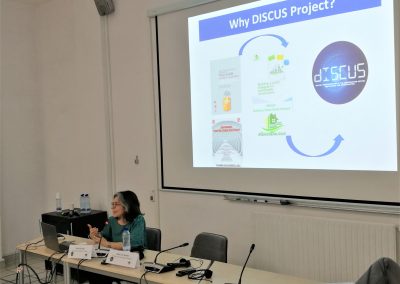
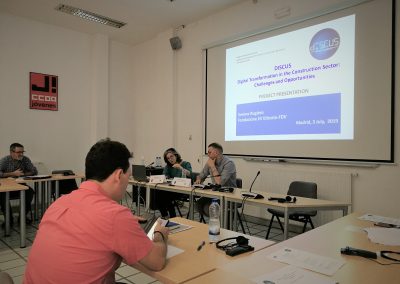
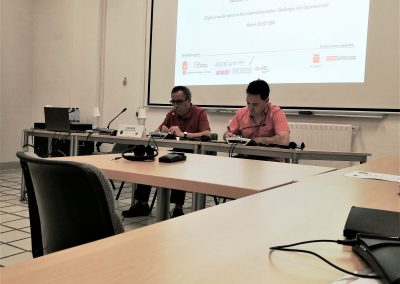
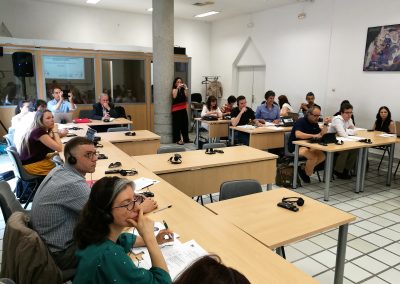
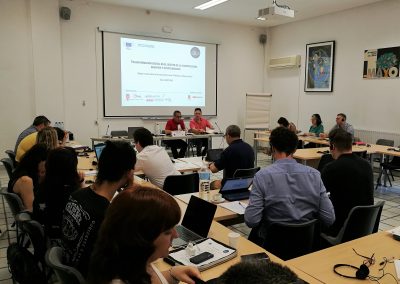
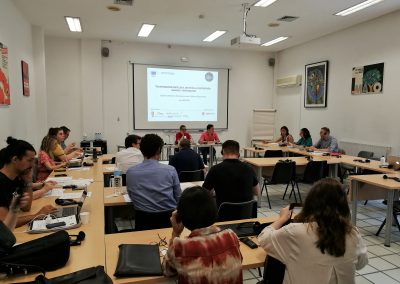
Hello, I read your article and your information is really amazing and so much helpful for me. Keep it up and Thank you very much and keep it up.